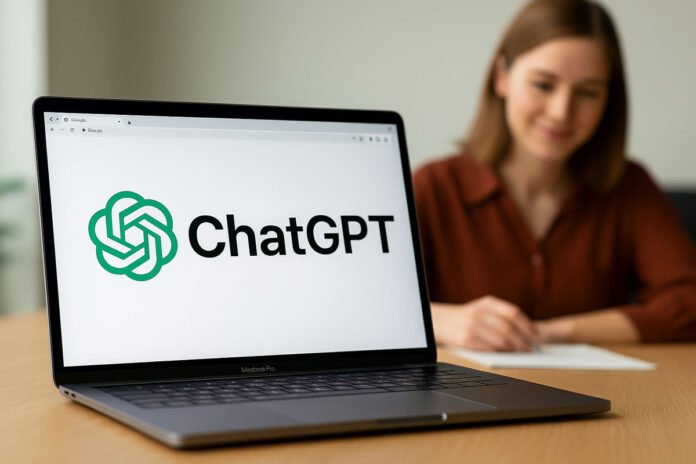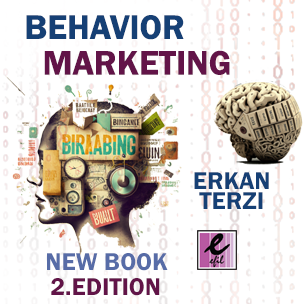In today’s digitalized world, we live in an era where marketing teams are racing against time. While striving to achieve maximum efficiency with limited resources, every new tool can save us time, provide inspiration, or make our strategies smarter. At this point, ChatGPT, backed by the power of artificial intelligence, is creating a true revolution for marketing teams.
So how does ChatGPT make the life of a marketing team easier?
1. Optimizing Product Messaging
Is your marketing copy not strong enough? ChatGPT analyzes your product descriptions and offers suggestions to make them more impactful using emotional triggers, pain points of the target audience, and message enhancers. This way, it’s not just what you say, but how you say it that creates impact. The e-commerce company Perspective used ChatGPT to make its product descriptions SEO-friendly and reduced content production time by 50%.
2. Campaign Planning Assistant
Planning a social media campaign from scratch? ChatGPT acts like a strategic advisor. It plans content calendars, creative ideas, audience segmentation, and more for you. Just define your goal, and AI handles the rest. BrandXchange agency created a virtual marketing team using ChatGPT and fully automated campaign planning.
3. Social Media Content Writing
Need 3 creative captions for an Instagram post? ChatGPT can generate short, engaging, and action-oriented social media content in seconds. Whether it’s humor, emotion, a call to action, or trending language — it adapts to your style. HelloFresh increased Facebook engagement by 47% using their ChatGPT-based chatbot “Freddy.”
4. Market Trend Analysis
Want to lead trends instead of chasing them? ChatGPT analyzes the latest developments in your industry and evaluates their potential impact on your marketing strategy. It also provides three actionable suggestions to guide your decisions. Expedia used ChatGPT to analyze travel trends and improve the user experience.
5. SEO-Oriented Content Creation
Looking to improve your website visibility? ChatGPT offers blog titles and content ideas optimized for your specific keywords. Creating Google-friendly content no longer takes hours. Perspective, an e-commerce platform, increased its organic traffic by 30% by producing SEO-optimized content with ChatGPT.
6. Competitor Analysis (Competitor Benchmarking)
You can generate detailed reports in seconds to analyze what your competitors are doing well, where you differ, and how you can stand out — even industry-specific. Hootsuite used ChatGPT to automate competitor analysis and shaped its marketing strategies accordingly.
7. Creating Personas
Are you speaking to the right person? ChatGPT creates detailed customer profiles for your target sector or product, including demographics, motivations, preferred platforms, and pain points. Radfield Home Care created customer personas using ChatGPT and tailored its services accordingly.
8. Developing Brand Voice
Achieving a consistent tone across all marketing channels is now easier. ChatGPT helps you develop a brand-specific voice. It builds the fundamental elements such as tone, word choice, and message consistency. Coca-Cola used ChatGPT to ensure a consistent brand voice across global campaigns.
9. Advertising Performance Analysis
Provide your Meta or Google Ads data, and ChatGPT will identify what’s working, what needs improvement, and offer visual/text-based suggestions to increase your conversion rates. Domino’s used a ChatGPT-based chatbot to analyze ad performance and boost customer engagement.
10. Email Marketing Optimization
With ChatGPT, you can optimize your email copy from subject line to body text, including A/B testing options. Personalized, attention-grabbing, and action-oriented emails are now just minutes away. Amazon sellers used ChatGPT to optimize product descriptions and email campaigns.
ChatGPT has become more than just an “AI-powered assistant” for marketing teams — it is now a productivity engine that supports strategy, content, analysis, and optimization end-to-end.
Today, a marketing team must be both creative and analytical. ChatGPT is the ideal partner to bring these two forces together in a single workflow.
However, alongside all these advantages, a serious warning must be made: if artificial intelligence is not properly guided, it can do more harm than good. Uncontrolled use of AI in marketing strategies can damage brand tone, disconnect with the target audience, or lead to serious issues such as crossing ethical boundaries. Therefore, AI-generated content and strategies must always be reviewed by a marketing manager and shaped under human supervision to ensure they align with brand identity. It must be remembered that while AI-driven communication may provide short-term gains, in the long run, it carries the risk of damaging brand trust and loyalty. AI is powerful when combined with human intelligence — but left on its own, it can be dangerous.


